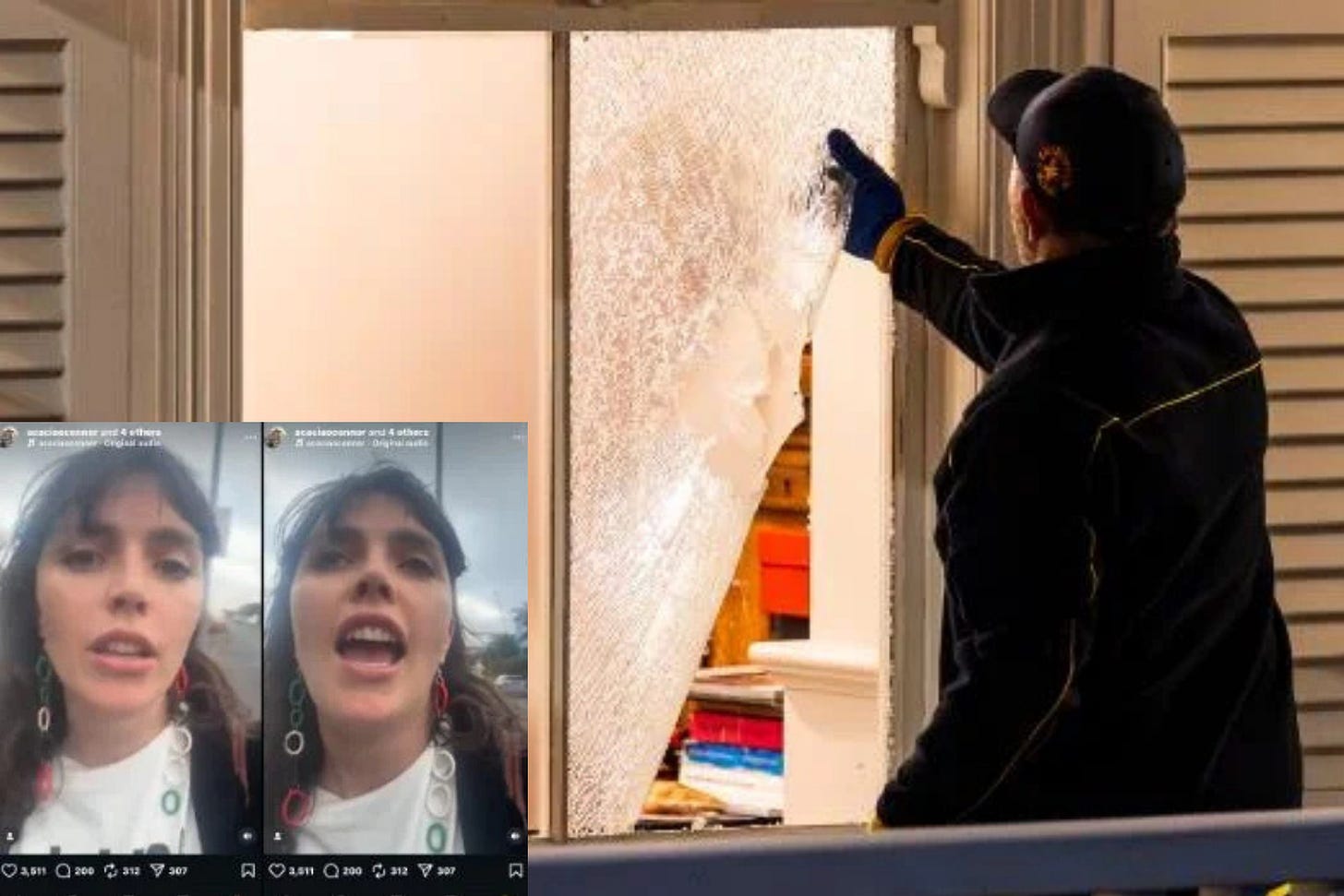Protests are sold as peaceful, democratic expressions of free speech, but let’s call them what they really are: calls for war.
When you march in a mob, chanting, fists raised, adrenaline pumping, you’re like a gang rallying for battle. Your brain loves it, flooding you with dopamine and endorphins, the same rush our ancestors felt charging into rival territory.
It’s not about dialogue; it’s about dominance, a primal urge to unite and conquer dressed up as a cause.
In New Zealand, this delusion gets absurd. You can legally swarm someone’s home, megaphones blaring, while their kids try to sleep. Take Acacia O’Connor’s recent stunt outside Foreign Minister Winston Peters’ house: she rallied a pro-Palestine crowd to protest.
She claims it was peaceful, but the messages written outside his home suggest war against the Foreign Minister. The act of smashing into the house with a crowbar suggests a call for war.
When the government tried to ban protests outside private homes, the opposition claimed it violated free speech. Greens co-leader Chlöe Swarbrick, no stranger to using protests disguised as peaceful demonstrations to incite war-like unification, led the charge.
Let’s be clear: protests aren’t peaceful; they’re a call for war.


